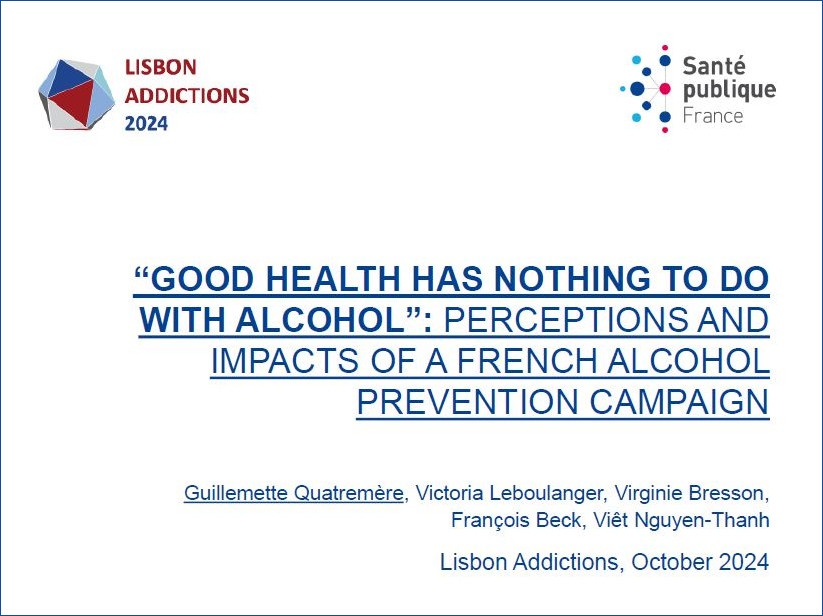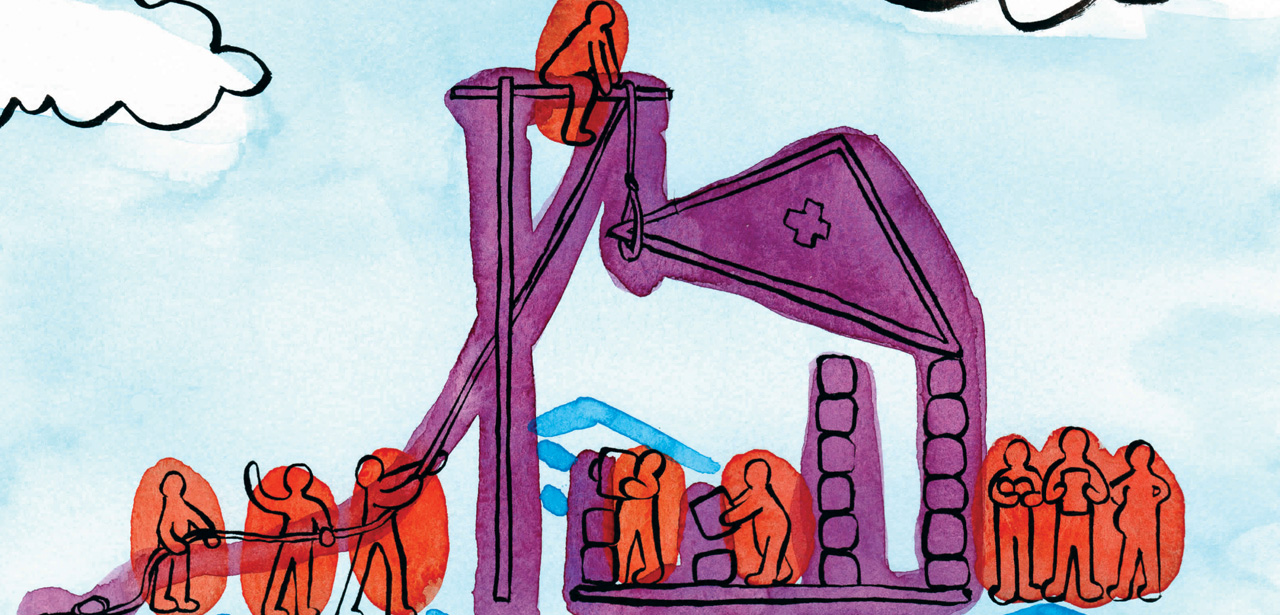
Introduction: Alcohol consumption has been widespread in France for decades and awareness of the long-term alcohol-related harms (LTH) is low among the population. To change positive attitudes towards alcohol, a mass media campaign was launched in January 2023, to coincide with New Year's greetings and with the French Dry January challenge. It highlighted the incongruity of a cultural habit that consists of wishing "good health" while toasting ("health" is the equivalent of "cheers" in French) when alcohol is harmful. The aim of the campaign was to make people think about their habits and to draw their attention to the LTH, with the slogan "good health has nothing to do with alcohol; alcohol increases the risks of cancer, brain haemorrhage and heart rhythm disorders". Method: A cross-sectional survey of people aged 15 years and over examined recognition, perceptions and perceived effectiveness of the campaign. Data were collected face-to-face between February 1 and 15, from a quota sampling (n=1,012). The results are compared with the average scores of national alcohol campaigns since 2003, when they were first broadcast and evaluated with a similar method. Results: In line with previous campaigns, 61% recognized the campaign, without differences according to socio-economic variables. The campaign's identification and impact scores were higher than the average scores of alcohol prevention campaigns: 74% said that the campaign showed people or situations they could identify with (+26 points), in particular drinkers exceeding low-risk drinking guidelines (84%). Besides, 45% felt concerned (+5 points), 31% said that the campaign encouraged them to think about their alcohol consumption (+7 points), 26% to reduce it (+8 points). On the other hand, the study reveals a lower level of perceived usefulness (76% vs. 91% on average). The campaign was slightly less appreciated: 72% said they enjoyed it (-11 points). Possible counter-productive effects were observed for 28% of respondents who indicated that the campaign gave a positive image of alcohol, and 19% that it made them want to drink alcohol. Furthermore, 30% of respondents said that the campaign did not go far enough in highlighting the alcohol-related harms (vs. 15% who said it went too far). Conclusion: The study showed that this type of campaign, which challenges our cultural habits, is promising regarding its potential impact on changes in alcohol-related behaviors and perceptions. They are comparable to those of another recent French alcohol prevention campaign that has been proved effective in raising LTH awareness and reducing alcohol consumption. However, this approach is probably more difficult to accept by a part of the population for whom the risks associated with low doses of alcohol are little known or dismissed. This encourages continued efforts to provide information on this issue.
Lisbon Addictions 2024, Lisbonne, 23 au 25 octobre 2024
Auteur : Quatremère Guillemette, Leboulanger Victoria, Bresson Virginie, Beck François, Nguyen-Thanh Viêt
Année de publication
: 2024
Pages : 12 p.
Format/Durée
: diaporama, 12 slides


